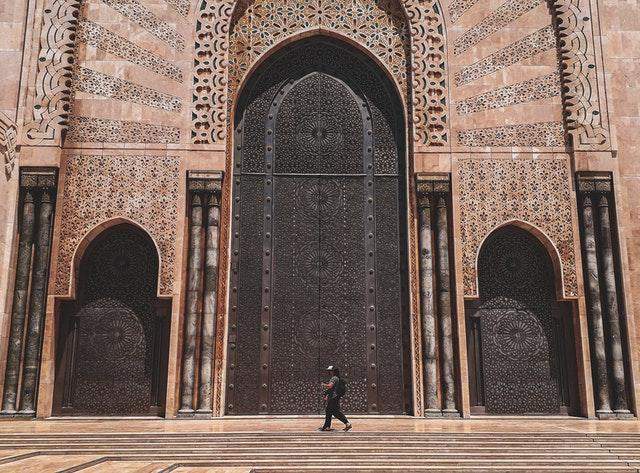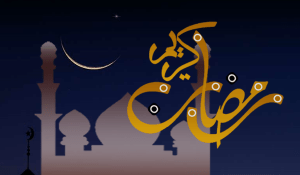|
Listen while working
Getting your Trinity Audio player ready...
|
Islam is a complete way of life. It incorporates the obligations towards Allah (Haqooq-Allah) as well as a system of living our lives and our relationship with people around us (Haqooq al Ibad). There is a perfect harmony and balance between the two. Unfortunately, today majority of us think of Islam as a set of rituals, forgetting the true essence of Islamic teachings.
The teachings of Quran and Prophet Mohammadﷺ constantly emphasize the importance of our relationship with the fellow human beings, to an extent that Allahﷻ if pleases may forgive any sin related to Haqooq-Allah except shirk, but any misdeed towards other people can only be forgiven him by them.
إِنَّ اللَّهَ لَا يَغْفِرُ أَن يُشْرَكَ بِهِ وَيَغْفِرُ مَا دُونَ ذَٰلِكَ لِمَن يَشَاءُ وَمَن يُشْرِكْ بِاللَّهِ فَقَدِ افْتَرَىٰ إِثْمًا عَظِيمً
Indeed, Allah does not forgive association with Him, but He forgives what is less than that for whom He wills. And he who associates others with Allah has certainly fabricated a tremendous sin. (Al Quran, An-Nisa 4:48)
إِنَّ اللَّهَ لَا يَغْفِرُ أَن يُشْرَكَ بِهِ وَيَغْفِرُ مَا دُونَ ذَٰلِكَ لِمَن يَشَاءُ وَمَن يُشْرِكْ بِاللَّهِ فَقَدْ ضَلَّ ضَلَالًا بَعِيدً
Indeed, Allah does not forgive association with Him, but He forgives what is less than that for whom He wills. And he who associates others with Allah has certainly gone far astray. (Al Quran, an-Nisa 4:116)
Haqooq-Allah are discussed by everyone in great details, with special emphasis on 5-pillars Shahada (faith), Salat (prayers), Zakat (alms), Sawm (fasting), and Hajj (pilgrimage). These represent the personal relationship of a person with Allahﷻ, despite they form part of a community and a relationship with people around us. Both Haqooq-Allah and Haqooq-al-ibad are closely interwoven in a perfect way. Either one is incomplete without the other, this shows the blessing of Allahﷻ, keeping the aspect of humanity in His rights as well.
The beauty of Salat as a ritual combines respect, organization, cleanliness and physical aspects. Fasting given an understanding of people suffering, besides its physical benefits. Zakat is comprehensive system for helping the people in need. Hajj is the greatest expression of organization.
The individual rights and duties of a person towards the relationships and community are expressed in Quran and Hadith a number of times. These expressions emphasize the importance of a system, which keeps all individuals at equal level. It defines the role of every individual in society and their obligations and responsibilities towards others as well as community as a whole.
وَقَضَىٰ رَبُّكَ أَلَّا تَعْبُدُوا إِلَّا إِيَّاهُ وَبِالْوَالِدَيْنِ إِحْسَانًا إِمَّا يَبْلُغَنَّ عِندَكَ الْكِبَرَ أَحَدُهُمَا أَوْ كِلَاهُمَا فَلَا تَقُل لَّهُمَا أُفٍّ وَلَا تَنْهَرْهُمَا وَقُل لَّهُمَا قَوْلًا كَرِيمً
And your Lord has decreed that you not worship except Him, and to parents, good treatment. Whether one or both of them reach old age [while] with you, say not to them [so much as], “uff,” and do not repel them but speak to them a noble word. (Al Quran, al-Isra 17:23)
وَاخۡفِضۡ لَهُمَا جَنَاحَ الذُّلِّ مِنَ الرَّحۡمَةِ وَقُلْ رَّبِّ ارۡحَمۡهُمَا كَمَا رَبَّيٰنِىۡ صَغِيۡرًا ؕ
And lower to them the wing of humility out of mercy and say, “My Lord, have mercy upon them as they brought me up [when I was] small.” (Al Quran, al-Isra 17:24)
حَدَّثَنَا قُتَيْبَةُ بْنُ سَعِيدٍ، حَدَّثَنَا جَرِيرٌ، عَنْ عُمَارَةَ بْنِ الْقَعْقَاعِ بْنِ شُبْرُمَةَ، عَنْ أَبِي زُرْعَةَ، عَنْ أَبِي هُرَيْرَةَ ـ رضى الله عنه ـ قَالَ جَاءَ رَجُلٌ إِلَى رَسُولِ اللَّهِ صلى الله عليه وسلم فَقَالَ يَا رَسُولَ اللَّهِ مَنْ أَحَقُّ بِحُسْنِ صَحَابَتِي قَالَ ” أُمُّكَ ”. قَالَ ثُمَّ مَنْ قَالَ ” أُمُّكَ ”. قَالَ ثُمَّ مَنْ قَالَ ” أُمُّكَ ”. قَالَ ثُمَّ مَنْ قَالَ ” ثُمَّ أَبُوكَ ”. وَقَالَ ابْنُ شُبْرُمَةَ وَيَحْيَى بْنُ أَيُّوبَ حَدَّثَنَا أَبُو زُرْعَةَ مِثْلَهُ
Narrated Abu Huraira: A man came to Allah’s Messengerﷺ and said, “O Allah’s Messengerﷺ! Who is more entitled to be treated with the best companionship by me?” The Prophet Mohammadﷺ said, “Your mother.” The man said. “Who is next?” The Prophetﷺ said, “Your mother.” The man further said, “Who is next?” The Prophetﷺ said, “Your mother.” The man asked for the fourth time, “Who is next?” The Prophetﷺ said, “Your father. (Sahih al-Bukhari: 5971)
Husband and Wife:
هُنَّ لِبَاسٌ لَّكُمْ وَأَنتُمْ لِبَاسٌ لَّهُنَّ
……They (are) garments for you and you (are) garments for them. (Al Quran, al-Baqarah 2:187)
اَلرِّجَالُ قَوَّامُوۡنَ عَلَى النِّسَآءِ بِمَا فَضَّلَ اللّٰهُ بَعۡضَهُمۡ عَلٰى بَعۡضٍ وَّبِمَاۤ اَنۡفَقُوۡا مِنۡ اَمۡوَالِهِمۡ ؕ فَالصّٰلِحٰتُ قٰنِتٰتٌ حٰفِظٰتٌ لِّلۡغَيۡبِ بِمَا حَفِظَ اللّٰهُ ؕ وَالّٰتِىۡ تَخَافُوۡنَ نُشُوۡزَهُنَّ فَعِظُوۡهُنَّ وَاهۡجُرُوۡهُنَّ فِى الۡمَضَاجِعِ وَاضۡرِبُوۡهُنَّ ۚ فَاِنۡ اَطَعۡنَكُمۡ فَلَا تَبۡغُوۡا عَلَيۡهِنَّ سَبِيۡلًا ؕاِنَّ اللّٰهَ كَانَ عَلِيًّا كَبِيۡرًا
Men are in charge of women by [right of] what Allah has given one over the other and what they spend [for maintenance] from their wealth. So righteous women are devoutly obedient, guarding in [the husband’s] absence what Allah would have them guard. But those [wives] from whom you fear arrogance – [first] advise them; [then if they persist], forsake them in bed; and [finally], strike them. But if they obey you [once more], seek no means against them. Indeed, Allah is ever Exalted and Grand. (Al Quran, an-Nisa 4:34)
وَمِنْ آيَاتِهِ أَنْ خَلَقَ لَكُم مِّنْ أَنفُسِكُمْ أَزْوَاجًا لِّتَسْكُنُوا إِلَيْهَا وَجَعَلَ بَيْنَكُم مَّوَدَّةً وَرَحْمَةً إِنَّ فِي ذَٰلِكَ لَآيَاتٍ لِّقَوْمٍ يَتَفَكَّرُون
And of His signs is that He created for you from yourselves mates that you may find tranquility in them; and He placed between you affection and mercy. Indeed in that are signs for a people who give thought. (Al Quran, ar-Rum 30:21)
Daughters
حَدَّثَنَا أَبُو الْيَمَانِ، أَخْبَرَنَا شُعَيْبٌ، عَنِ الزُّهْرِيِّ، قَالَ حَدَّثَنِي عَبْدُ اللَّهِ بْنُ أَبِي بَكْرٍ، أَنَّ عُرْوَةَ بْنَ الزُّبَيْرِ، أَخْبَرَهُ أَنَّ عَائِشَةَ زَوْجَ النَّبِيِّ صلى الله عليه وسلم حَدَّثَتْهُ قَالَتْ جَاءَتْنِي امْرَأَةٌ مَعَهَا ابْنَتَانِ تَسْأَلُنِي، فَلَمْ تَجِدْ عِنْدِي غَيْرَ تَمْرَةٍ وَاحِدَةٍ، فَأَعْطَيْتُهَا، فَقَسَمَتْهَا بَيْنَ ابْنَتَيْهَا، ثُمَّ قَامَتْ فَخَرَجَتْ، فَدَخَلَ النَّبِيُّ صلى الله عليه وسلم فَحَدَّثْتُهُ فَقَالَ “ مَنْ يَلِي مِنْ هَذِهِ الْبَنَاتِ شَيْئًا فَأَحْسَنَ إِلَيْهِنَّ كُنَّ لَهُ سِتْرًا مِنَ النَّارِ ”.
Narrated `Aisha: (the wife of the Prophet Mohammadﷺ A lady along with her two daughters came to me asking me (for some alms), but she found nothing with me except one date which I gave to her and she divided it between her two daughters, and then she got up and went away. Then the Prophet Mohammadﷺ came in and I informed him about this story. He said, “Whoever is in charge of (put to test by) these daughters and treats them generously, then they will act as a shield for him from the (Hell) Fire.” (Sahih Bukhari: 5995, Sahih Muslim: 2629)
حَدَّثَنَا الْحُسَيْنُ بْنُ الْحَسَنِ الْمَرْوَزِيُّ، حَدَّثَنَا ابْنُ الْمُبَارَكِ، عَنْ حَرْمَلَةَ بْنِ عِمْرَانَ، قَالَ سَمِعْتُ أَبَا عُشَّانَةَ الْمَعَافِرِيَّ، قَالَ سَمِعْتُ عُقْبَةَ بْنَ عَامِرٍ، يَقُولُ سَمِعْتُ رَسُولَ اللَّهِ ـ صلى الله عليه وسلم ـ يَقُولُ “ مَنْ كَانَ لَهُ ثَلاَثُ بَنَاتٍ فَصَبَرَ عَلَيْهِنَّ وَأَطْعَمَهُنَّ وَسَقَاهُنَّ وَكَسَاهُنَّ مِنْ جِدَتِهِ – كُنَّ لَهُ حِجَابًا مِنَ النَّارِ يَوْمَ الْقِيَامَةِ ” .
Uqbah bin Amir said, I heard the Prophet Mohammadﷺ say: “Whoever has three daughters and is patient towards them, and feeds them, gives them to drink, and clothes them from his wealth; they will be a shield for him from the Fire on the Day of Resurrection.'” (Sunan Ibn Majah: 3669, Sahih-Darussalam)
حَدَّثَنَا أَحْمَدُ بْنُ مُحَمَّدٍ، أَخْبَرَنَا عَبْدُ اللَّهِ بْنُ الْمُبَارَكِ، أَخْبَرَنَا ابْنُ عُيَيْنَةَ، عَنْ سُهَيْلِ بْنِ أَبِي صَالِحٍ، عَنْ أَيُّوبَ بْنِ بَشِيرٍ، عَنْ سَعِيدٍ الأَعْشَى، عَنْ أَبِي سَعِيدٍ الْخُدْرِيِّ، قَالَ قَالَ رَسُولُ اللَّهِ صلى الله عليه وسلم “ مَنْ كَانَ لَهُ ثَلاَثُ بَنَاتٍ أَوْ ثَلاَثُ أَخَوَاتٍ أَوِ ابْنَتَانِ أَوْ أُخْتَانِ فَأَحْسَنَ صُحْبَتَهُنَّ وَاتَّقَى اللَّهَ فِيهِنَّ فَلَهُ الْجَنَّةُ ” . قَالَ هَذَا حَدِيثٌ غَرِيبٌ .
Abu Sa’eed Al-Khudri narrated that : Prophet Mohammadﷺ said: “Whoever has three daughters, or three sisters, or two daughters, or two sisters and he keeps good company with them and fears Allah regarding them, then Paradise is for him. (Jami at-Tirmidhi: 1916, Hasan-Darussalam)
Teachers
حَدَّثَنَا أَحْمَدُ بْنُ عِيسَى الْمِصْرِيُّ، حَدَّثَنَا عَبْدُ اللَّهِ بْنُ وَهْبٍ، عَنْ يَحْيَى بْنِ أَيُّوبَ، عَنْ سَهْلِ بْنِ مُعَاذِ بْنِ أَنَسٍ، عَنْ أَبِيهِ، أَنَّ النَّبِيَّ ـ صلى الله عليه وسلم ـ قَالَ “ مَنْ عَلَّمَ عِلْمًا فَلَهُ أَجْرُ مَنْ عَمِلَ بِهِ لاَ يَنْقُصُ مِنْ أَجْرِ الْعَامِلِ ” .
Sahl bin Mu’adh bin Anas narrated from his father that: The Prophet Mohammadﷺ said: “Whoever teaches some knowledge will have the reward of the one who acts upon it, without that detracting from his reward in the slightest.” (Sunan Ibn Majah Vol. 1, Book 1, Hadith 240, Hasan-Darussalam)
Neighbors
حَدَّثَنَا مُحَمَّدُ بْنُ مِنْهَالٍ، حَدَّثَنَا يَزِيدُ بْنُ زُرَيْعٍ، حَدَّثَنَا عُمَرُ بْنُ مُحَمَّدٍ، عَنْ أَبِيهِ، عَنِ ابْنِ عُمَرَ ـ رضى الله عنهما ـ قَالَ قَالَ رَسُولُ اللَّهِ صلى الله عليه وسلم “ مَا زَالَ جِبْرِيلُ يُوصِينِي بِالْجَارِ حَتَّى ظَنَنْتُ أَنَّهُ سَيُوَرِّثُهُ ”.
Allah’ Apostle said, Gabriel kept on recommending me about treating the neighbors in a kind and polite manner, so much so that I thought that he would order (me) to make them (my) heirs.” (Sahih Bukhari: 6015)
حَدَّثَنَا عَاصِمُ بْنُ عَلِيٍّ، حَدَّثَنَا ابْنُ أَبِي ذِئْبٍ، عَنْ سَعِيدٍ، عَنْ أَبِي شُرَيْحٍ، أَنَّ النَّبِيَّ صلى الله عليه وسلم قَالَ ” وَاللَّهِ لاَ يُؤْمِنُ، وَاللَّهِ لاَ يُؤْمِنُ، وَاللَّهِ لاَ يُؤْمِنُ ”. قِيلَ وَمَنْ يَا رَسُولَ اللَّهِ قَالَ ” الَّذِي لاَ يَأْمَنُ جَارُهُ بَوَايِقَهُ ”. تَابَعَهُ شَبَابَةُ وَأَسَدُ بْنُ مُوسَى. وَقَالَ حُمَيْدُ بْنُ الأَسْوَدِ وَعُثْمَانُ بْنُ عُمَرَ وَأَبُو بَكْرِ بْنُ عَيَّاشٍ وَشُعَيْبُ بْنُ إِسْحَاقَ عَنِ ابْنِ أَبِي ذِئْبٍ، عَنِ الْمَقْبُرِيِّ، عَنْ أَبِي هُرَيْرَةَ،.
The Prophet Mohammadﷺ said, “By Allah, he does not believe! By Allah, he does not believe! By Allah, he does not believe!” It was said, “Who is that, O Allah’s Messengerﷺ?” He said, “That person whose neighbor does not feel safe from his evil.” (Sahih Bukhari: 6016)
Muslim Brothers
حَدَّثَنَا مُسَدَّدٌ، قَالَ حَدَّثَنَا يَحْيَى، عَنْ شُعْبَةَ، عَنْ قَتَادَةَ، عَنْ أَنَسٍ ـ رضى الله عنه ـ عَنِ النَّبِيِّ صلى الله عليه وسلم. وَعَنْ حُسَيْنٍ الْمُعَلِّمِ، قَالَ حَدَّثَنَا قَتَادَةُ، عَنْ أَنَسٍ، عَنِ النَّبِيِّ صلى الله عليه وسلم قَالَ “ لا يُؤْمِنُ أَحَدُكُمْ حَتَّى يُحِبَّ لأَخِيهِ مَا يُحِبُّ لِنَفْسِهِ ”.
The Prophet Mohammadﷺ said, “None of you will have faith till he wishes for his (Muslim) brother what he likes for himself.” (Sahih Bukhari: 13).
Community
حَدَّثَنَا سَعِيدُ بْنُ يَحْيَى بْنِ سَعِيدٍ الْقُرَشِيِّ، قَالَ حَدَّثَنَا أَبِي قَالَ، حَدَّثَنَا أَبُو بُرْدَةَ بْنُ عَبْدِ اللَّهِ بْنِ أَبِي بُرْدَةَ، عَنْ أَبِي بُرْدَةَ، عَنْ أَبِي مُوسَى ـ رضى الله عنه ـ قَالَ قَالُوا يَا رَسُولَ اللَّهِ أَىُّ الإِسْلاَمِ أَفْضَلُ قَالَ “ مَنْ سَلِمَ الْمُسْلِمُونَ مِنْ لِسَانِهِ وَيَدِهِ ”.
Narrated Abu Musa: Some people asked Prophet Mohammadﷺ “Whose Islam is the best? i.e. (Who is a very good Muslim)?” He replied, “One who avoids harming the Muslims with his tongue and hands.” (Sahih Bukhari: 11)
حَدَّثَنَا قُتَيْبَةُ بْنُ سَعِيدٍ، وَعَلِيُّ بْنُ حُجْرٍ، قَالاَ حَدَّثَنَا إِسْمَاعِيلُ، – وَهُوَ ابْنُ جَعْفَرٍ – عَنِ الْعَلاَءِ، عَنْ أَبِيهِ، عَنْ أَبِي هُرَيْرَةَ، أَنَّ رَسُولَ اللَّهِ صلى الله عليه وسلم قَالَ ” أَتَدْرُونَ مَا الْمُفْلِسُ ” . قَالُوا الْمُفْلِسُ فِينَا مَنْ لاَ دِرْهَمَ لَهُ وَلاَ مَتَاعَ . فَقَالَ ” إِنَّ الْمُفْلِسَ مِنْ أُمَّتِي يَأْتِي يَوْمَ الْقِيَامَةِ بِصَلاَةٍ وَصِيَامٍ وَزَكَاةٍ وَيَأْتِي قَدْ شَتَمَ هَذَا وَقَذَفَ هَذَا وَأَكَلَ مَالَ هَذَا وَسَفَكَ دَمَ هَذَا وَضَرَبَ هَذَا فَيُعْطَى هَذَا مِنْ حَسَنَاتِهِ وَهَذَا مِنْ حَسَنَاتِهِ فَإِنْ فَنِيَتْ حَسَنَاتُهُ قَبْلَ أَنْ يُقْضَى مَا عَلَيْهِ أُخِذَ مِنْ خَطَايَاهُمْ فَطُرِحَتْ عَلَيْهِ ثُمَّ طُرِحَ فِي النَّارِ “
Abu Hurairah (May Allah be pleased with him) reported: Prophet Mohammadﷺ said, “Do you know who is bankrupt?” They said: “The bankrupt among us is one who has neither money with him nor any property”. He said, “The real bankrupt of my Ummah would be he who would come on the Day of Resurrection with Salat, Saum and Sadaqah (charity), (but he will find himself bankrupt on that day as he will have exhausted the good deeds) because he reviled others, brought calumny against others, unlawfully devoured the wealth of others, shed the blood of others and beat others; so his good deeds would be credited to the account of those (who suffered at his hand). If his good deeds fall short to clear the account, their sins would be entered in his account and he would be thrown in the (Hell) Fire”. (Sahih Muslim: 2581)
مِنْ أَجْلِ ذَٰلِكَ كَتَبْنَا عَلَىٰ بَنِي إِسْرَائِيلَ أَنَّهُ مَن قَتَلَ نَفْسًا بِغَيْرِ نَفْسٍ أَوْ فَسَادٍ فِي الْأَرْضِ فَكَأَنَّمَا قَتَلَ النَّاسَ جَمِيعًا وَمَنْ أَحْيَاهَا فَكَأَنَّمَا أَحْيَا النَّاسَ جَمِيعًا وَلَقَدْ جَاءَتْهُمْ رُسُلُنَا بِالْبَيِّنَاتِ ثُمَّ إِنَّ كَثِيرًا مِّنْهُم بَعْدَ ذَٰلِكَ فِي الْأَرْضِ لَمُسْرِفُون
Because of that, We decreed upon the Children of Israel that whoever kills a soul unless for a soul or for corruption [done] in the land – it is as if he had slain mankind entirely. And whoever saves one – it is as if he had saved mankind entirely. And our messengers had certainly come to them with clear proofs. Then indeed many of them, [even] after that, throughout the land, were transgressors. (Al Quran, al-Maidah 5:32)
Relatives
وَاٰتِ ذَا الۡقُرۡبٰى حَقَّهٗ وَالۡمِسۡكِيۡنَ وَابۡنَ السَّبِيۡلِ وَلَا تُبَذِّرۡ تَبۡذِيۡرًا
And give the relative his right, and [also] the poor and the traveler, and do not spend wastefully. (Al Quran, al-Isra 17:26)
وَاعۡبُدُوا اللّٰهَ وَلَا تُشۡرِكُوۡا بِهٖ شَيۡـئًـا ؕ وَّبِالۡوَالِدَيۡنِ اِحۡسَانًا وَّبِذِى الۡقُرۡبٰى وَالۡيَتٰمٰى وَ الۡمَسٰكِيۡنِ وَالۡجَـارِ ذِى الۡقُرۡبٰى وَالۡجَـارِ الۡجُـنُبِ وَالصَّاحِبِ بِالۡجَـنۡۢبِ وَابۡنِ السَّبِيۡلِ ۙ وَمَا مَلَـكَتۡ اَيۡمَانُكُمۡ ؕ اِنَّ اللّٰهَ لَا يُحِبُّ مَنۡ كَانَ مُخۡتَالًا فَخُوۡرَا ۙ
Worship Allah and associate nothing with Him, and to parents do good, and to relatives, orphans, the needy, the near neighbor, the neighbor farther away, the companion at your side, the traveler, and those whom your right hands possess. Indeed, Allah does not like those who are self-deluding and boastful. (Al Quran, an-Nisa 4:36)
Guests
حَدَّثَنَا عَبْدُ اللَّهِ بْنُ يُوسُفَ، أَخْبَرَنَا مَالِكٌ، عَنْ سَعِيدِ بْنِ أَبِي سَعِيدٍ الْمَقْبُرِيِّ، عَنْ أَبِي شُرَيْحٍ الْكَعْبِيِّ، أَنَّ رَسُولَ اللَّهِ صلى الله عليه وسلم قَالَ ” مَنْ كَانَ يُؤْمِنُ بِاللَّهِ وَالْيَوْمِ الآخِرِ فَلْيُكْرِمْ ضَيْفَهُ، جَائِزَتُهُ يَوْمٌ وَلَيْلَةٌ، وَالضِّيَافَةُ ثَلاَثَةُ أَيَّامٍ، فَمَا بَعْدَ ذَلِكَ فَهْوَ صَدَقَةٌ، وَلاَ يَحِلُّ لَهُ أَنْ يَثْوِيَ عِنْدَهُ حَتَّى يُحْرِجَهُ ”. حَدَّثَنَا إِسْمَاعِيلُ، قَالَ حَدَّثَنِي مَالِكٌ، مِثْلَهُ وَزَادَ ” مَنْ كَانَ يُؤْمِنُ بِاللَّهِ وَالْيَوْمِ الآخِرِ فَلْيَقُلْ خَيْرًا أَوْ لِيَصْمُتْ ”.
Narrated Abu Shuraih Al-Ka`bi: Allah’s Messengerﷺ said, Whoever believes in Allah and the Last Day, should serve his guest generously. The guest’s reward is: To provide him with a superior type of food for a night and a day and a guest is to be entertained with food for three days, and whatever is offered beyond that, is regarded as something given in charity. And it is not lawful for a guest to stay with his host for such a long period so as to put him in a critical position.” (Sahih Bukhari: 6135)
Forgiveness
الَّذِينَ يُنفِقُونَ فِي السَّرَّاءِ وَالضَّرَّاءِ وَالْكَاظِمِينَ الْغَيْظَ وَالْعَافِينَ عَنِ النَّاسِ وَاللَّهُ يُحِبُّ الْمُحْسِنِين
Who spend [in the cause of Allah ] during ease and hardship and who restrain anger and who pardon the people – and Allah loves the doers of good; (Al Quran, aal-Imraan 3:134)
وَإِنْ عَاقَبْتُمْ فَعَاقِبُوا بِمِثْلِ مَا عُوقِبْتُم بِهِ وَلَئِن صَبَرْتُمْ لَهُوَ خَيْرٌ لِّلصَّابِرِين
And if you punish [an enemy, O believers], punish with an equivalent of that with which you were harmed. But if you are patient – it is better for those who are patient. (Al Quran, an-Nahl 16:126)
يَا أَيُّهَا الَّذِينَ آمَنُوا إِنَّ مِنْ أَزْوَاجِكُمْ وَأَوْلَادِكُمْ عَدُوًّا لَّكُمْ فَاحْذَرُوهُمْ وَإِن تَعْفُوا وَتَصْفَحُوا وَتَغْفِرُوا فَإِنَّ اللَّهَ غَفُورٌ رَّحِيم
O you who have believed, indeed, among your wives and your children are enemies to you, so beware of them. But if you pardon and overlook and forgive – then indeed, Allah is Forgiving and Merciful. (Al Quran, at-Taghaabun 64:14)
Show-off
وَالَّذِيۡنَ يُنۡفِقُوۡنَ اَمۡوَالَهُمۡ رِئَآءَ النَّاسِ وَلَا يُؤۡمِنُوۡنَ بِاللّٰهِ وَلَا بِالۡيَوۡمِ الۡاٰخِرِؕ وَمَنۡ يَّكُنِ الشَّيۡطٰنُ لَهٗ قَرِيۡنًا فَسَآءَ قَرِيۡنًا
Allah does not love those who spend out of their wealth to make a show of it to people when they believe neither in Allah nor in the Last Day. And he who has taken Satan for a companion has indeed taken for himself a very bad companion. (Al Quran, an-Nisa 4:38)
وَآتِ ذَا الْقُرْبَىٰ حَقَّهُ وَالْمِسْكِينَ وَابْنَ السَّبِيلِ وَلَا تُبَذِّرْ تَبْذِيرً
And give the relative his right, and [also] the poor and the traveler, and do not spend wastefully. (Al Quran, al-Isra 17:26)
Speaking truth
حَدَّثَنَا زُهَيْرُ بْنُ حَرْبٍ، وَعُثْمَانُ بْنُ أَبِي شَيْبَةَ، وَإِسْحَاقُ بْنُ إِبْرَاهِيمَ، قَالَ إِسْحَاقُ أَخْبَرَنَا وَقَالَ الآخَرَانِ، حَدَّثَنَا جَرِيرٌ، عَنْ مَنْصُورٍ، عَنْ أَبِي وَائِلٍ، عَنْ عَبْدِ اللَّهِ، قَالَ قَالَ رَسُولُ اللَّهِ صلى الله عليه وسلم “ إِنَّ الصِّدْقَ يَهْدِي إِلَى الْبِرِّ وَإِنَّ الْبِرَّ يَهْدِي إِلَى الْجَنَّةِ وَإِنَّ الرَّجُلَ لَيَصْدُقُ حَتَّى يُكْتَبَ صِدِّيقًا وَإِنَّ الْكَذِبَ يَهْدِي إِلَى الْفُجُورِ وَإِنَّ الْفُجُورَ يَهْدِي إِلَى النَّارِ وَإِنَّ الرَّجُلَ لَيَكْذِبُ حَتَّى يُكْتَبَ كَذَّابًا ” .
Abdullah reported Allah’s Messengerﷺ as saying: Truth leads one to Paradise and virtue leads one to Paradise and the person tells the truth until he is recorded as truthful, and lie leads to obscenity and obscenity leads to Hell, and the person tells a lie until he is recorded as a liar. (Sahih Muslim: 2607a)
Quran and Hadith encompass every aspect of our life, from birth till death. There are rules and regulations, there are directions and all these have been practiced by Prophet Mohammadﷺ, setting up a comprehensive model for others to follow. However, we have to be very cautious in accepting what is truth, if there is Hadith, check the authenticity before making a decision. A number of apps are available nowadays including Islam360, and websites like Sunnah.com.
Read Quran with translation to understand the message given by Allahﷻ
Hadith from Sahih Bukhari and Sahih Muslim are authentic, as for remaining check the authenticity.
حَدَّثَنَا آدَمُ، حَدَّثَنَا شُعْبَةُ، عَنْ أَبِي التَّيَّاحِ، قَالَ سَمِعْتُ أَنَسَ بْنَ مَالِكٍ ـ رضى الله عنه ـ قَالَ قَالَ النَّبِيُّ صلى الله عليه وسلم “ يَسِّرُوا وَلاَ تُعَسِّرُوا، وَسَكِّنُوا وَلاَ تُنَفِّرُوا ”.
The Prophet Mohammadﷺ said, “Make things easy for the people, and do not make it difficult for them, and make them calm (with glad tidings) and do not repulse (them). (Sahih Bukhari: 6125)
Photo by Zakaria Faizi from Pexels





